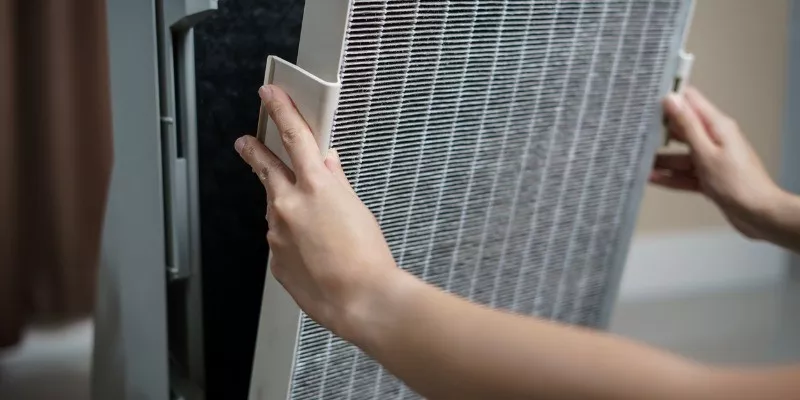
High-Efficiency Particulate Air filters (abbreviated to HEPA) are a bit of a mystery to homeowners. Most get that these filters offer superior filtration, but other than that, you may not know much. There is a bit of confusion on the subject online. As your HVAC experts, we are here to clear up your misconceptions so that you can get the quality filter you need for your equipment.
What is a HEPA Filter?
In order to be a TRUE HEPA filter, a filter needs to catch 99.97% of the particulates in the air that are 0.03 microns in size or larger. HEPA filters are often installed in air purifiers, which not only use a HEPA filter to remove particles from the air but also use other types of filters to offer better performance. Most will include a pre-filter of carbon and sometimes a UV light. These kill bacteria and viruses, remove smells, and plenty of other particulates.
HEPA filters are too restrictive to be installed directly in-line with the furnace so they are installed with a by-pass. Some HEPA filters mount directly to the exterior of the ductwork and have their own internal bypass. You should always get your HVAC professional’s advice to be sure that you have a TRUE HEPA filter.
If you want to learn more about a HEPA filter and its benefits for your family, contact your local ClimateCare today.
HEPA Filter Costs & Are They Necessary?
HEPA filters are designed to remove things like bacteria and viruses from the air, not to protect your equipment. For that reason, you want to have a good quality furnace filter (we think MERV 10-13 is the sweet spot) installed in the main airflow of your HVAC system to remove dust, dander, and other large particles. A good quality main system filter will reduce the frequency that you need to replace the expensive HEPA filter.
If you are concerned about cost, you can use a HEPA filter when it matters most to you (such as during your allergy season) and just use the high-quality main system filter for the rest of the year. Although, you should know that using some filters can damage your furnace by restricting airflow into them. As always, talk to your HVAC professional before you change the MERV rating of your main system filter or switch to a different brand.
Why Use a HEPA Filter?
HEPA filters will improve your indoor air quality by removing the smallest particulates in the air. The cleaner the air, the better for your health. This can help you better handle the symptoms of allergies and asthma.

When Should You Change Your HEPA Filter?
If you are using a HEPA filter you should not change it on some preset schedule, but according to its specific quality. Check on the filter to see how it is doing and assess your levels of dust and other particulates in the house. Most people will find they need to change their main system filter every four to six months but the HEPA filter itself may last an entire year. However, pets, allergies, and other things can merit changing them more often. You’ll know it’s time to change your filter when you can no longer see light through it.
Increasing your indoor air quality and your comfort is our pleasure. For more information about HEPA filters and how they can help your family contact your local ClimateCare today.




